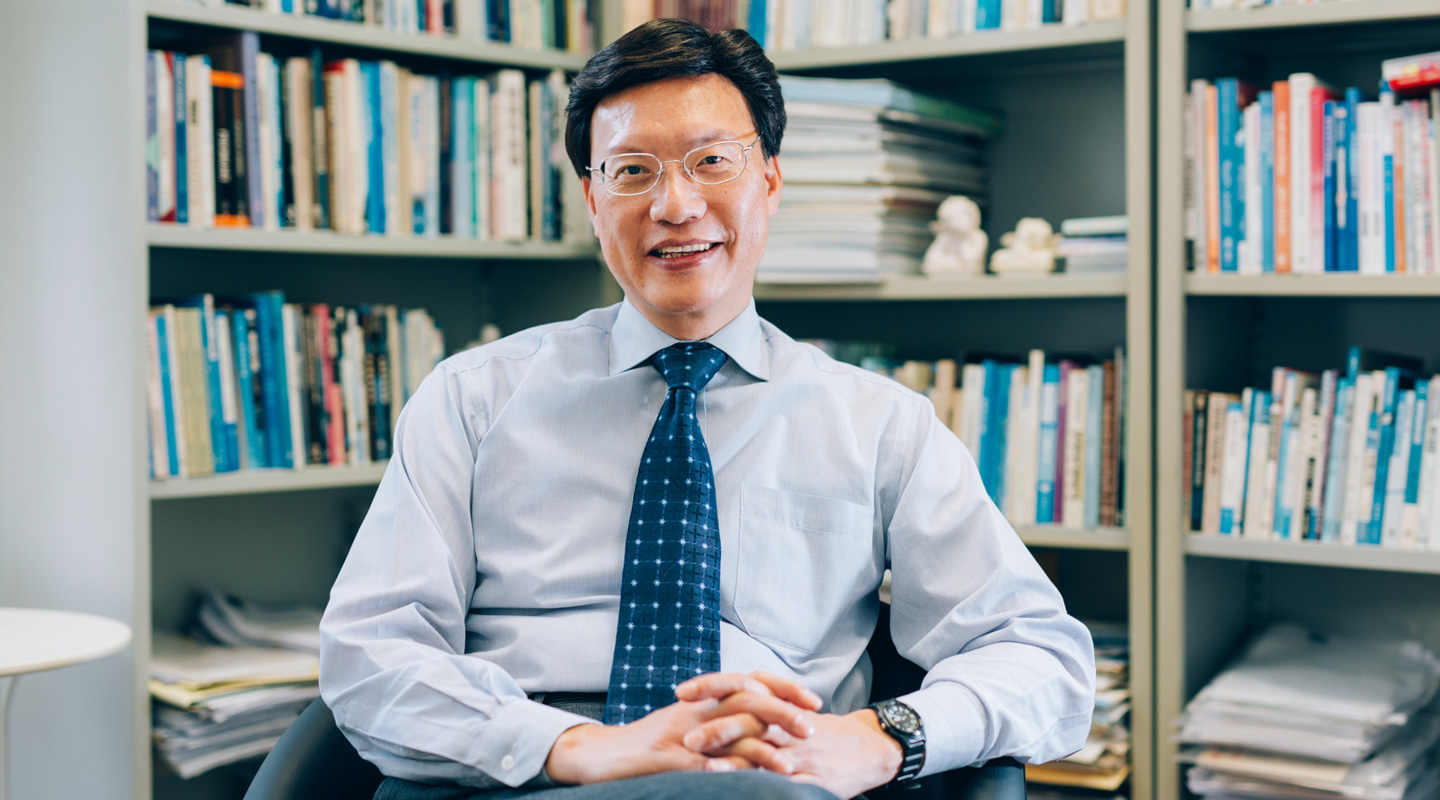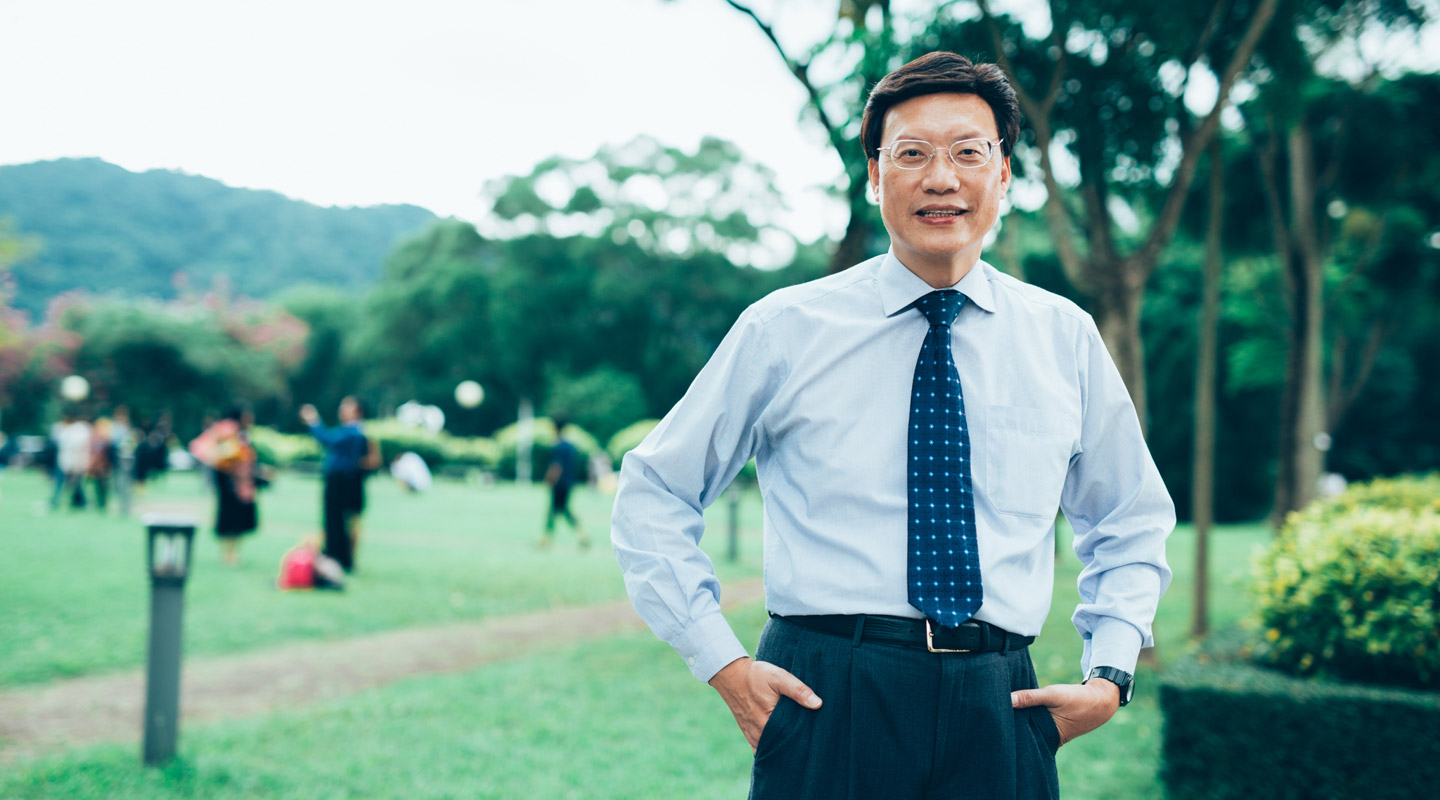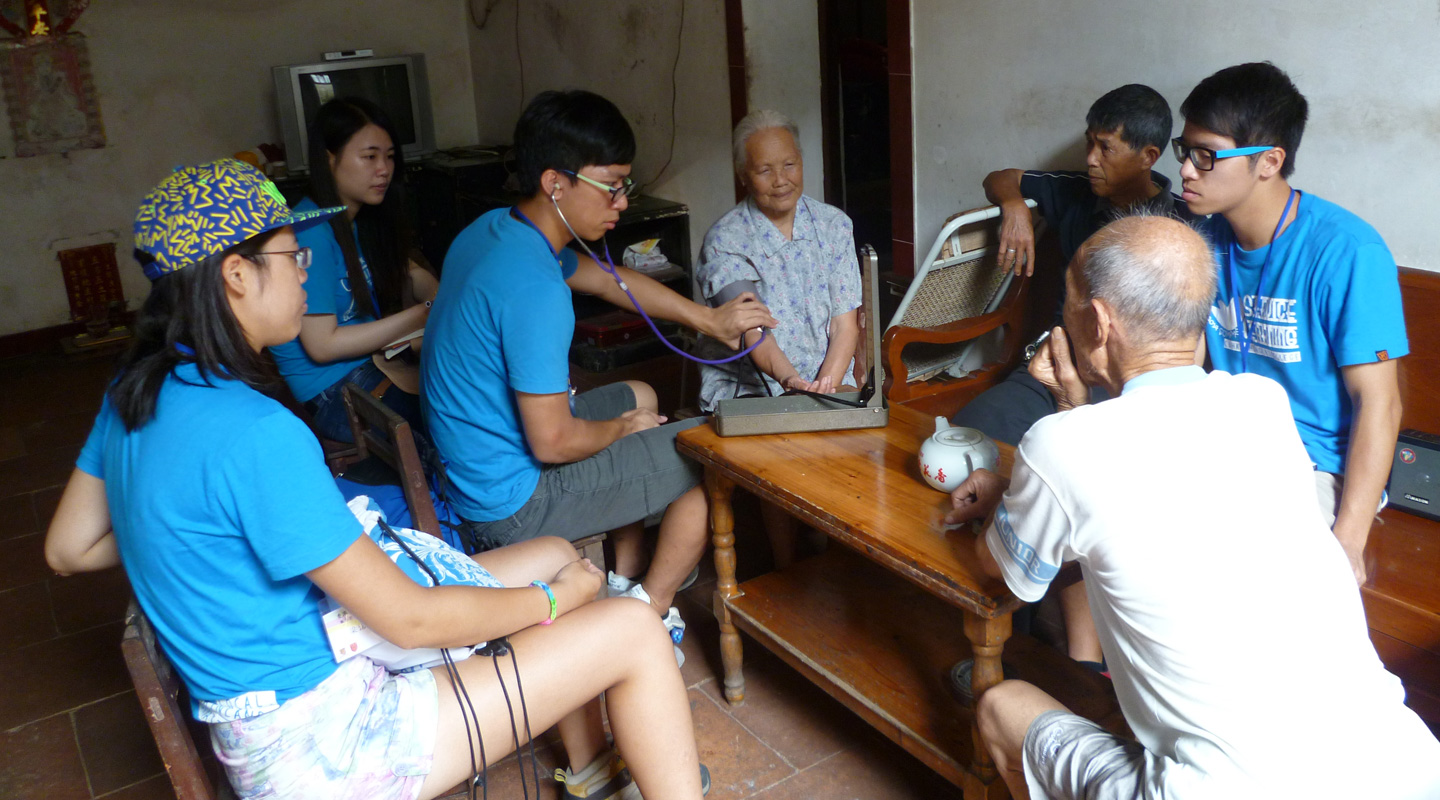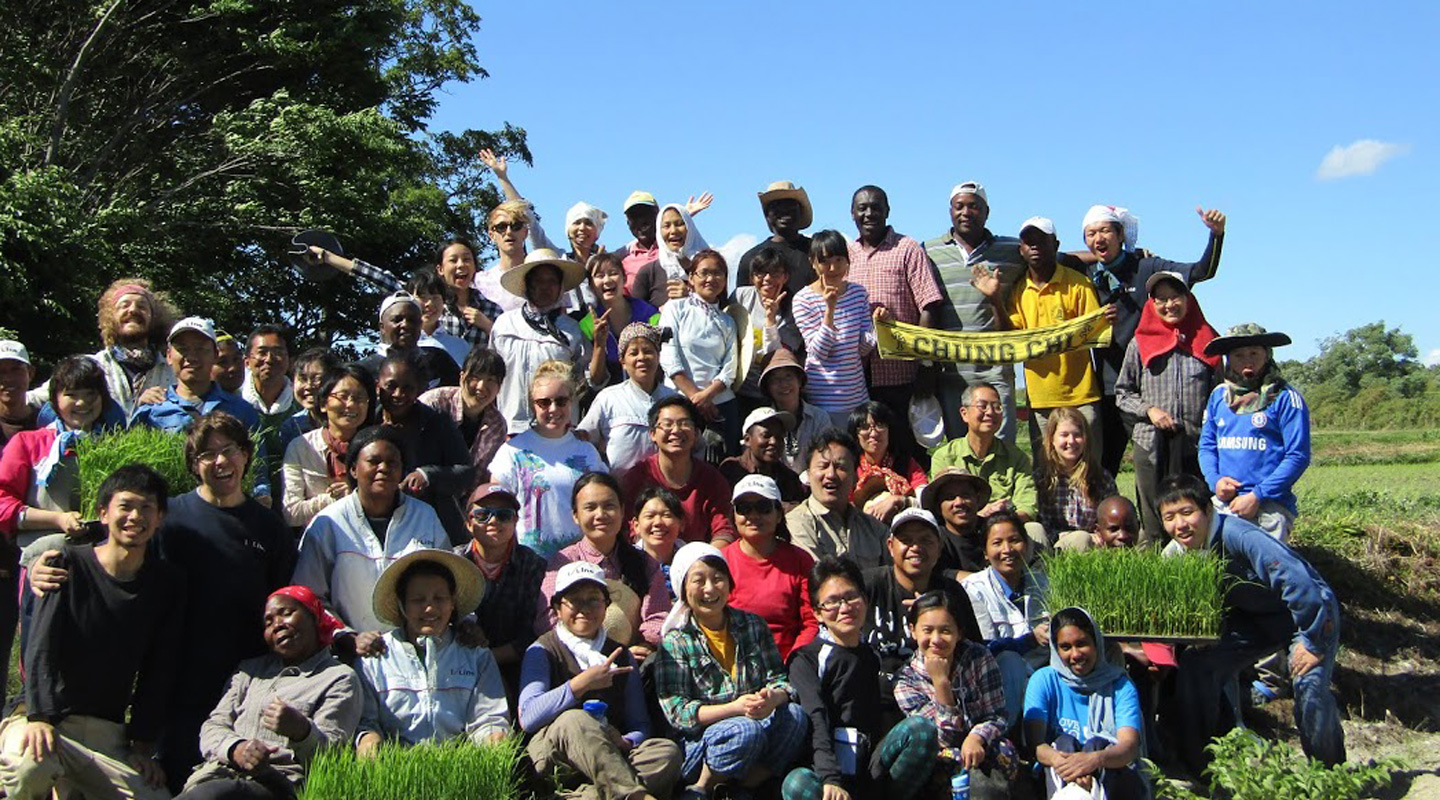Dear readers, With the launch of e-newsletter CUHK in Focus, CUHKUPDates has retired and this site will no longer be updated. To stay abreast of the University’s latest news, please go to https://focus.cuhk.edu.hk. Thank you.
Taking the University Out into the World
Prof. Steven Ngai developed the system of service learning, which calls on students to serve the less advantaged sectors of society and learn about how human beings could look after each other.

To Prof. Steven Ngai Sek-yum, the university is a place without walls, where the classroom extends into the community. Ngai has developed the system of service learning at CUHK, which calls on students to venture off campus and work with organizations to provide important social services, often to disadvantaged sectors of society.
The service-learning initiative got its start in 2000, when Chung Chi College decided to enhance its general education programme, and asked Professor Ngai to develop what became the first service-learning programme in Hong Kong higher education. The College wanted its students to engage with marginalized groups in society, in order to increase their exposure to the outside world.
Students must apply for it as an elective course and go through an interview system that assesses their suitability to take on potentially sensitive interactions with disadvantaged people who may convey confidential facts about themselves.
Students then spend a minimum of 120 hours—and often opt to dedicate themselves for many more—on a specific project. Over the last 15 years of the scheme, they have contributed more than 150,000 man-hours of service to communities in Hong Kong, mainland China, India, Indonesia, Japan, Korea, the Philippines and Thailand.
There is an eclectic mix of projects that the students can support. Around 28 CUHK students take part in local projects each summer, with many more choosing projects overseas.

New Ideas on Local Projects
In the summer of 2015, a four-student team supported social workers at a centre for the elderly in Tai Hang, in and around the Lai Tak Tsuen public-housing estate. The students interviewed the elderly people about the history of the community, local customs such as the annual Fire Dragon Festival, and how the makeup of the population has changed amid rapid development. They recorded the oral history stored in the minds of the elderly.
The project represents an updated idea of what it means to serve senior citizens. In the past, students simply worked at the local elderly centre. But gathering the oral history requires students to be proactive and maintain closer contact with the community. The students learn from the elderly people as well as serving them. At the end of the project, the students presented scrap books and memoirs that they had prepared for the project participants, which the interview subjects were thrilled to receive.
‘When we talk about service learning, the key point is that we need to go outside to the community,’ Professor Ngai, chairman of the Department of Social Work, says. He is also the associate director of the Service-Learning Centre at Chung Chi College.
On returning to CUHK, the students must present to their peers to explain what they have achieved and learnt through various projects. Their agency supervisors, typically senior staffers from the non-governmental organizations involved, also attend and help facilitate discussion about the problems that face disadvantaged groups, the status and limitations of existing social services, and the skills required to serve the needy. Students must then also submit a paper explaining their work.
Another new initiative in Hong Kong in mid-2015 sent a four-person team to a new drug-treatment counselling centre in the New Territories. Outpatients, mainly in their late teens and early 20s, attend the centre to wean them from psychotropic-substance abuse and to learn healthy patterns of behaviour.
‘In general, the young drug abusers welcome our students going there—they are also young people,’ Professor Ngai says. The students taught the drug addicts English and social skills, since some have few friends. They also brought them on a campus tour to CUHK, which went down very well.
The students also invented a well-received programme that the centre’s staff had not thought of. Realizing that the parents of young drug addicts often struggle to connect with their children, the students organized a peer-support group for the parents, in part to teach them how to interact with Millennials. They showed them how to use WhatsApp and emoticons, and encouraged tech-savvy parents to share their skills with the other parents.
The Hong Kong projects require a commitment of at least 21 hours per week over a six-week period, and the students frequently become significantly more involved. The international programmes are by nature more intensive since the participants must live full-time at the site of their projects.
Experiencing Different Cultures through Overseas Services

In recent years, CUHK has sent around 28 students to mountainous regions in rural China. The villages have largely been hollowed out as young people head to China’s big cities for work, leaving impoverished grandparents looking after young children.
The social outreach focuses on health education and intervention. Four-person teams visit villagers in their homes to test their blood pressure and other vital statistics, explaining the benefits of exercise and a balanced diet. Many villagers have large salt, fat and sugar intakes, leading to a high rate of diabetes and strokes. The students explain about osteoporosis and how to combat it. They also present information in public squares in the villages, with posters and events that feature health-based games. But the education is also a two-way street, with students learning about the culture and ways of rural China.
‘Our students enjoyed being there and the reception from the villagers, who are very friendly and treat them to a lot of agricultural products,’ Professor Ngai says.

Another programme sends students to Japan to work on an experimental farm. They spend a week harvesting, weeding, feeding livestock, and transplanting rice prototypes into paddy fields, working alongside not only local farmers but also students from the United States, Europe, Africa and South Asia.
The same scheme in other years has sent students to the Philippines and Indonesia to help in villages there, installing sanitation, toilets and water purifiers. The CUHK students reported back that they learnt a lot not just about the lifestyles of the countries they visited but also about the cultures and working styles of their fellow students from around the world.
‘Service learning can be very local—but it can also be very international,’ Professor Ngai says.
by Alex Frew McMillan
This article was originally published in No. 472, Newsletter in Feb 2016.